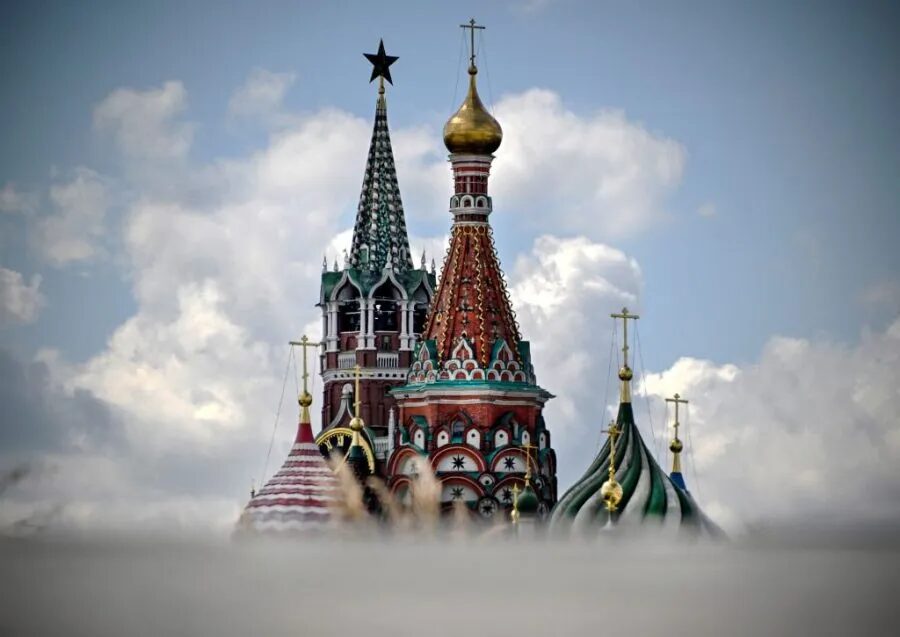6 mins read
New European energy crisis?
Transship of Russian gas to Europe via TurkStream hit an all time high this week as prices triple. The EU is emptying its tanks at the fastest pace in 5 years. Are we headed for a new energy crisis?
5 mins read

Markets are rife with rumours of impending talks between presidents Donald Trump and Vladimir Putin on a ceasefire for the war in Ukraine. Even before Trump told the New York Post last week that he had spoken with Putin over the telephone and that the Russian president wanted to end the war, stock market traders were rushing to buy stocks from the businesses associated with Ukraine.
Ukrainian sovereign bonds, shares in the Austrian bank Raiffeisen, the Ukrainian mining company Ferrexpo and global steelmaker Arcelor Mittal have all posted record gains over the past week. The markets are betting on a prompt ceasefire and for sanctions against Russia to be eased. However, Moscow has refused to confirm the phone call between Putin and Trump and has warned against optimistic expectations.
Russia is managing well, and its economic problems are primarily homegrown
Russia has officially restated its demands in ending the conflict in Ukraine: fully recognised sovereignty over the occupied regions of the country, including the parts still controlled by Kyiv; a neutral Ukraine banned from joining Nato; and a lifting of sanctions against Moscow. Russia is also demanding prompt elections in Ukraine, which would see Volodymyr Zelensky removed. Moscow has indicated that it’s willing to decide the future of Ukraine directly with the US over the heads of Ukraine itself and Europe.
Ukraine has, unsurprisingly, deemed these demands unacceptable, but Zelensky’s administration has nevertheless indicated that it is ready for talks. Given the country’s precarious military and economic position, it doesn’t have much leverage. Much, then, depends on the whims of Trump.
According to one top foreign affairs official from Trump’s previous administration, the President regards the end of the war as his priority. He is, apparently, much more engaged personally in the breakdown of relations between Russia and Ukraine than between 2016 and 2020. According to this official, Trump is not yet considering lifting the sanctions. Moscow, of course, would insist on it in any negotiations.
No country can boast the dubious honour of being sanctioned more than Russia. Since 2014, more than 15,000 sanctions have been imposed on Russia by Ukraine and its Western allies. However, the Kremlin is only concerned about the restrictions imposed by the EU, the UK and US. According to a person familiar with the thinking of the Russian presidential administration, those imposed by the latter worry Moscow the most.
Russia’s position has remained unchanged since 2014: that all sanctions are illegal and must be lifted altogether. This maximalist approach is hardly achievable, though. Not only because Trump doesn’t have the power to lift European sanctions but also because some US sanctions are embedded into legislation and would need congress to approve the changes.
There is a way around this – the 1974 Jackson-Vanik amendment, for example, which restricted trade with the USSR in response to the bloc’s anti-Semitic emigration policy, was lifted only in 2012. Still, years before that, US presidents granted Russia conditional normal trade relations subject to annual review. Russia doesn’t want to see a repetition of this conditional easing but might feel compelled agree to it.
Even a partial lifting of US restrictions would crack the united front of Western powers when it comes to sanctions. No binding mechanism exists to align national sanctions regimes – every country does so voluntarily. If the US relaxes its sanctions in any way, those who remain will find themselves in an unenviable position: needing to shoulder the costs of the sanctions regime alone while leaving possible profits to the US.
If Trump keeps sanctions in place, there is also the chance he could indulge Moscow by not enforcing them too strictly. One option would, for example, be to not impose secondary sanctions against Russia’s leading oil buyers, India and China, and the third-party countries facilitating cross-border trade.
So far, Russia has demonstrated impressive resilience in adapting its economy to and circumventing the restrictions imposed on it by the West. Without further enforcement, it will, in all likelihood, find a way of working around even the most recent sanctions against its oil exports and tanker fleet. There are conflicting opinions in Moscow on which sanctions are the most damaging. Industrialists and ministers responsible for the economy mainly complain about the restrictions on vital imports, notably machinery and parts, and financial sanctions, which thwart trade. The bankers and managers of the country’s macroeconomy are more concerned about the sanctions against oil exports and the banking system.
However, Russia is managing well, and its economic problems, amplified by sanctions, are primarily homegrown. High inflation, a shortage of workers, the prohibitively high cost of credit, a slowdown in the production of everything unrelated to the war effort – the easing of sanctions alone can’t resolve these issues. On the other hand, while it is deteriorating, the Russian economic stance is far from that of the late Soviet Union and is not forcing Putin to compromise for social stability. He may find confidence in the 4.1 per cent of annual GDP growth that the country experienced in 2024.
Markets usually know better, and a ceasefire might not be far away. However, sanctions will probably remain, and, for the rest of the world, Russia will still be pretty uninvestable – even when the guns fall silent.